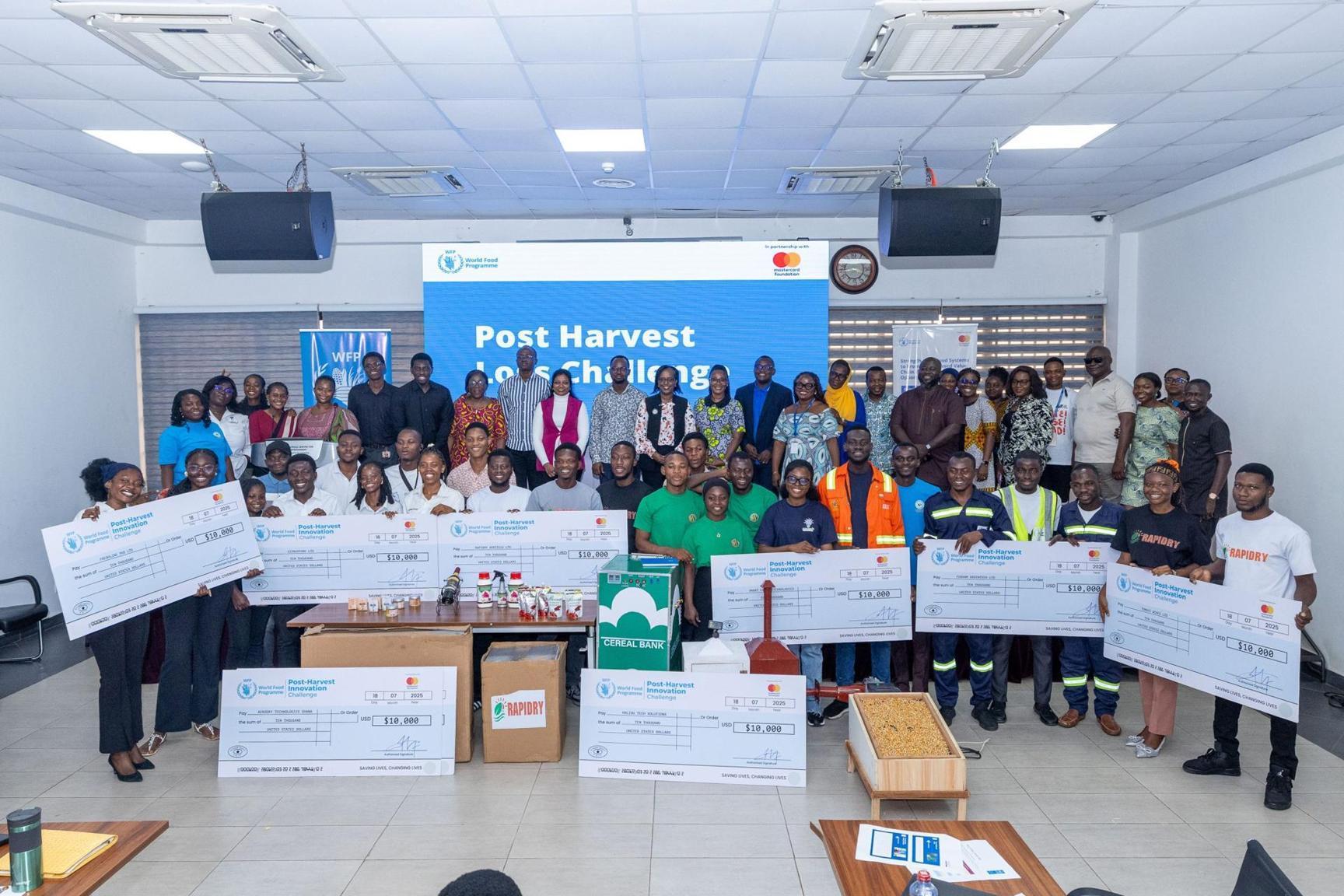Africa-Press – Ghana. The World Food Programme (WFP), in partnership with the Mastercard Foundation, has awarded between $1,000 and $10,000 to Ghanaian startups tackling post-harvest losses.
The funding followed an Agribusiness Competition, which evaluated proposals from indigenous ventures offering innovative, sustainable, and climate-conscious solutions for processing and preserving agricultural produce.
The initiative promotes food transformation as a strategy for reducing waste and strengthening food security.
During the three-day contest at the University of Ghana, a panel of experts assessed prototypes including solar dryers, rice-based cosmetics, smart storage technologies, and tomato powders.
In an interview with the Ghana News Agency, Ms Aurore Rusiga, Country Director of WFP, praised the ingenuity of the participating startups, noting that reducing post-harvest losses could substantially boost food availability, enhance national food security, and improve incomes for farmers and agribusinesses.
She said the WFP was committed to empowering the youth, and to youth-led innovation, geared towards building resilient, inclusive, and sustainable food systems.
“Ghana’s food revolution is no longer a dream, but already in motion considering the efforts of researchers, financial institutions, agro-industry, farmers and ingenious innovation of our young people in the agriculture sector, without forgetting the unwavering support of the government,” she said.
The agriculture sector contributes over 21 per cent to Ghana’s GDP and employs roughly 60 per cent of the population, covering 65 per cent of the country’s land.
Mr Steven Nhyira Odarteifio, Coordinator for Food Systems at WFP, said deploying the innovations identified through the programme to smallholder farmers could help reduce post-harvest losses and boost their incomes.
“We are dedicating between $1,000 to $10,000 of funding available to these young, brilliant minds, so that for whatever feedback we give them, whatever presentations they’ve made to us, we can then stagger these payments and charges as they meet KPIs we’ve set for them to achieve that scale,” he said.
Post-harvest losses cost Ghana an estimated $1.9 billion annually, mainly due to inadequate processing facilities, poor storage, and limited road infrastructure.
For More News And Analysis About Ghana Follow Africa-Press







